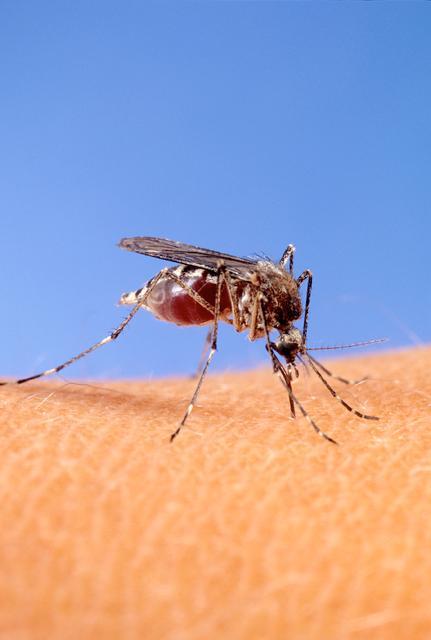
The warm winter may make for a spring and summer full of pests, like ticks and mosquitoes. Photo courtesy of the USDA
This summer, camping trips will be canceled, cookouts squashed and sporting events sabotaged. Why? Thanks to the higher temperatures experienced this winter, the South will see higher numbers of ticks, mosquitos and other blood-sucking insects earlier in the year and for a longer period of time than normal.
“Because of the mild winter, insects and ticks will likely be active earlier than they have been in the past,” Charles Apperson , professor of entomology, said.
This does not mean we can expect a larger population of insects in the spring, but rather a more diverse one. As for what is causing the influx, Apperson gives most of the credit to the warm winter weather.
“When the winter is mild, mosquito and tick populations initiate activity earlier than under normal winter conditions,” Apperson said. “Winter temperatures would have to be extremely below normal for over wintering insect populations to be adversely affected.”
The earlier activity of mosquitoes and ticks will result in more time for mating thus causing larger populations of pests in the summer. Along with the impending attack of blood-sucking bugs comes a threat of a different kind. Blood-sucking bugs are known for carrying West Nile virus and Lyme disease, both of which can cause severe symptoms and, in extreme cases, death. West Nile virus, carried by mosquitoes, is a serious, life-altering disease that is potentially fatal. People are infected with WNV through the bite of an infested mosquito. In very rare cases, WNV has been spread via blood transfusions, organ transplants, breastfeeding and from mother to baby during pregnancy. However, it can’t be spread from person-to-person by casual contact.
The majority of infected individuals will never show signs of WNV . Some people infected with WNV will have mild symptoms such as fever, nausea and rash; some will develop high fevers, convulsions, paralysis and, in some cases, permanent neurological effects. People who develop symptoms of severe WNV , such as unusual headaches or confusion, should seek medical attention immediately. Severe WNV illness usually requires hospitalization.
According to Apperson , the best protection against WNV is to avoid mosquito bites by using insect repellent, wearing long sleeves and long pants, keeping window and door screens in good shape and dumping out settled water where mosquitoes can lay their eggs. Lyme disease is caused by the bacterium borrelia burgdorferi and is transmitted to humans by the bite of an infected deer tick. Typical symptoms include fever, headache, exhaustion and a “bull’s eye” shaped skin rash. Untreated, infection can spread to joints, heart and the nervous system, but most cases of Lyme disease can be treated successfully with a few weeks of antibiotics.
Using insect repellent, removing ticks immediately from the skin, and eliminating tick habitats around homes can prevent Lyme disease and other tick-borne illnesses. “The transmission cycle of viruses, such as Lyme disease and West Nile virus, are dependent on many factors,” Apperson said. “In addition to tick and mosquito populations, the virus has to be introduced into an area by birds.”
Very few cases of West Nile virus and Lyme disease have been reported in North Carolina in the last few years, and neither biologists nor entomologists expect much of a significant increase. This summer be sure to cover up, use bug repellent and make your home pest habitat-free. “Just take the preventative measures and everything will be fine,” Apperson said.